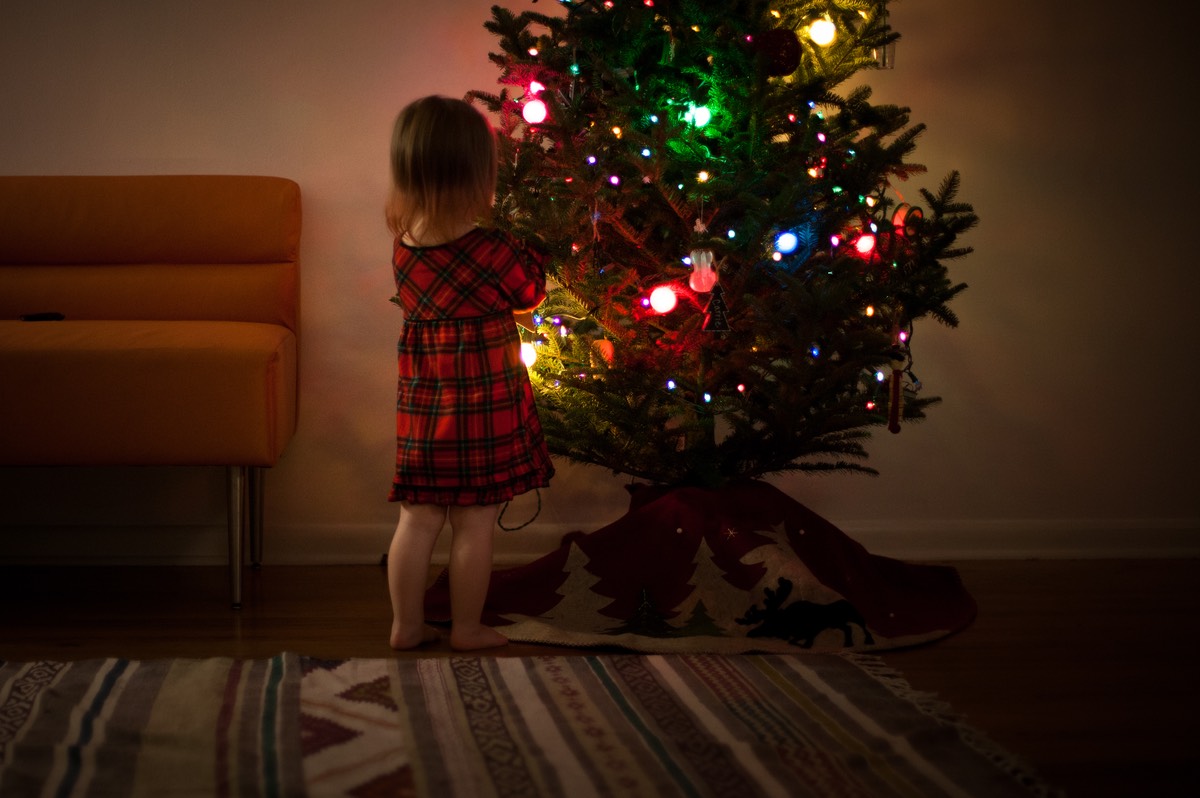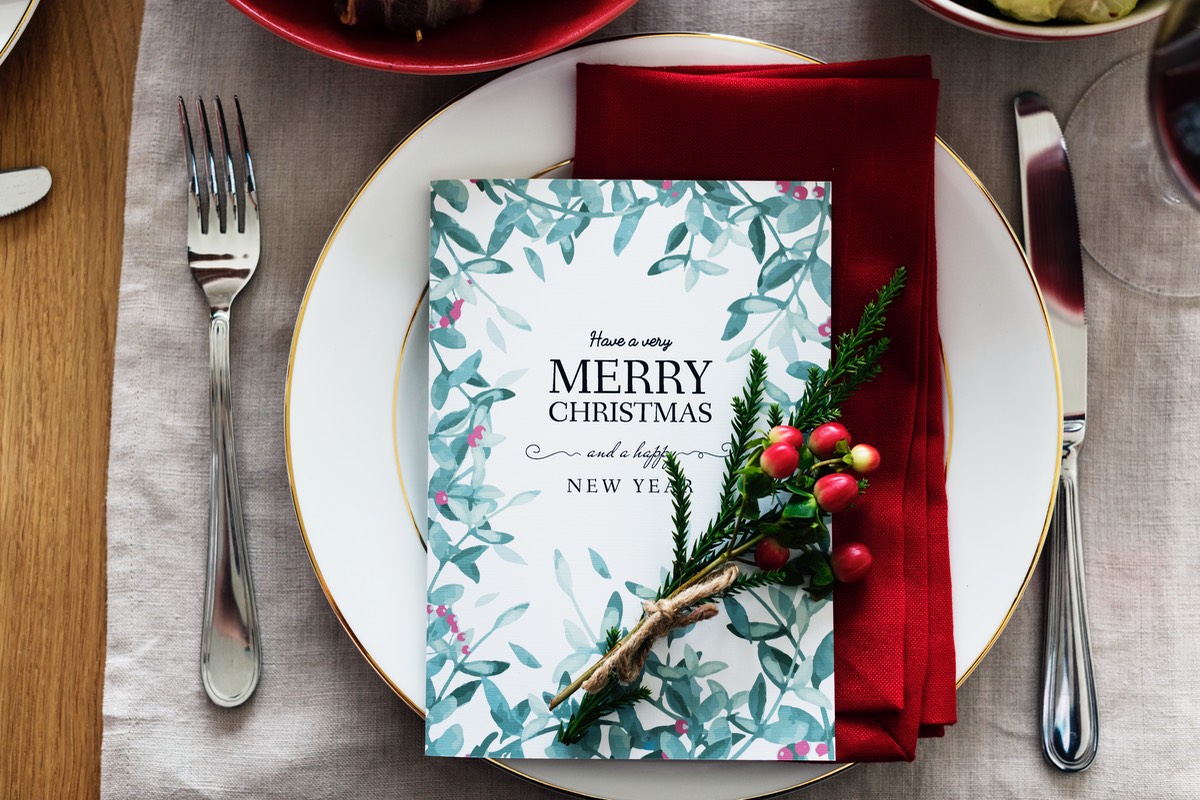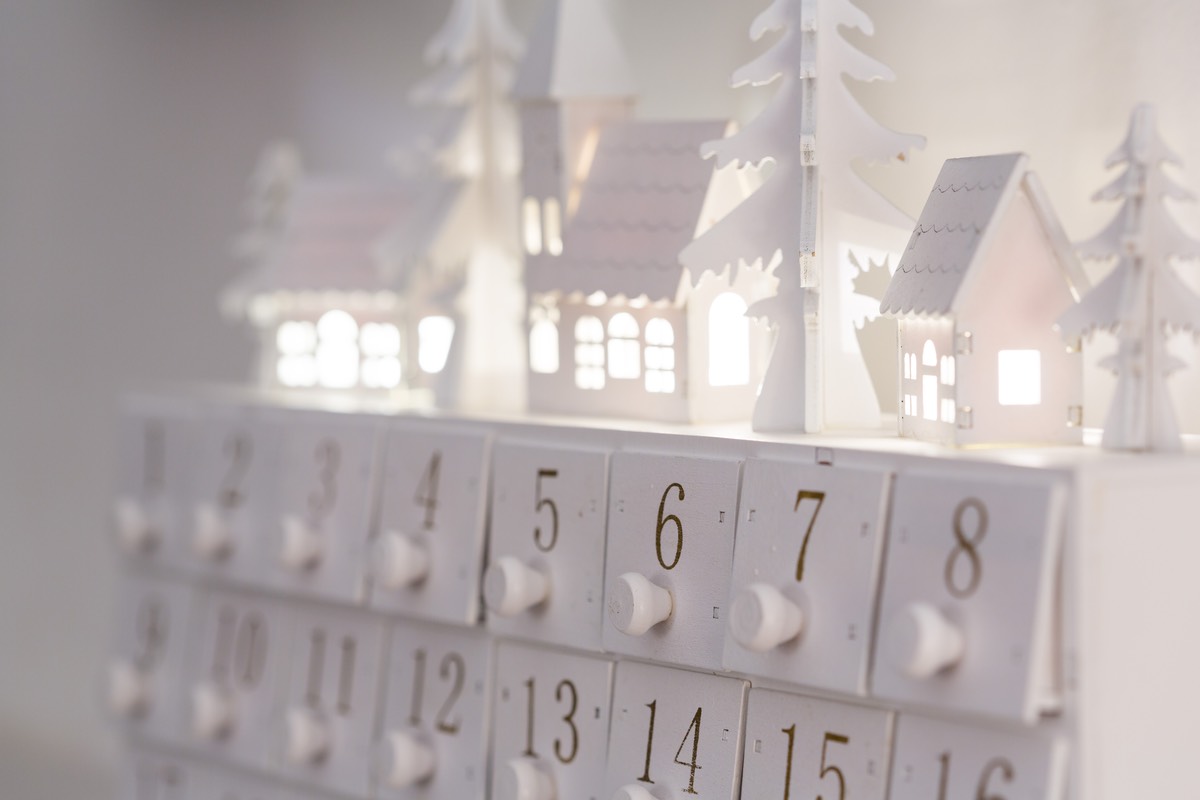For many families, the holiday season is a time to gather and to share stories of days gone by. These stories reflect the shared experiences of the family, and keep those that are no longer with us present. These stories help us make meaning of who we are, and where we came from. They connect us. Click here to download a free PDF copy of this blog

Photo: David Bredehoft
My Family Christmas Morning Story
Chapter One - As a child I would wake up my siblings and creep downstairs to see what was left under the tree long before it was time to wake up our parents, then we would go back to bed to wait until a respectable hour to get up. We all agree that the best late-night surprise was the year there were three red sleds waiting for us under the tree. I relished the status of the first one up - running through the house with the sleigh bells waking the family. Then I became a teen and gladly turned that role over to my younger siblings.
This story connects me with my siblings every time we share it, and it gives our children a glimpse into the lives of their parents as children. It reminds us of the good stuff.
Research tells us one of the gifts we can give ourselves and our family is the sharing of family stories. Stories are more than fond memories. Dr. Martha Driessnack explains the many psychological and physical benefits of family story telling in “Who is in your family?” The importance of family stories.
FAMILY STORIES:
ü Create connection and a sense of belonging.
ü Require the use of both the left and right side of the brain, teaching children to use their whole brain. They make our children smarter.
ü Foster positive self-esteem.
ü Teach resiliency- to help us get through tough times.
ü Reduce stress.
ü Protect our bodies and brains from the negative impact of stress and trauma.
ü Promote the release of dopamine- a feel good, happiness chemical in our bodies.

Pexels-photo: Lisc. CCO
Chapter Two- When celebrating Christmas as a new wife, with my siblings and mother in “our” first house my husband, not quite as excited to carry on the early morning tradition, had to work Christmas day and insisted he would not get up at 4:00 a.m. for Santa. The earliest we could wake him was 6:30 a.m. Not easily detoured, my mother, sister, brother and I went through the house after my husband was asleep on Christmas eve, and set the clocks back two hours. We got up at 4:00 a.m. with the morning Christmas bells eager to share our tradition and bring my husband into the fold. He participated in the early morning ritual because the clocks all said it was 6:00 a.m. The trick was making sure he didn’t leave for work too early. That would not have been good. Our solution - every time he left a room someone would run around and adjust the clock forward by 15-20 minutes working slowly to the correct time. He eventually caught on to our game, and 26 years later we are still laughing about it.
This story reminds us that traditions can be carried on. They encourage us to laugh. Stories teach our children to be fun and playful.
Sometimes details of that history, so clear when experienced, are later lost or forgotten. Here are four simple ideas to help families build, record, and share their stories.
1. FAMILY STORIES - SCRAPBOOK IT
One way to record Family History and say, “Good-Bye” to the old year in preparation for saying, “Hello” to the New Year, is to paste the old year in a scrapbook on New Year’s Day. One family that regularly makes a year book has a small chest in which they deposit mementos during the year. On New Year's Day they open their chest, sort their items, talk about them and decide which ones to include in their Family Year Book. In years past they have included a program from a band concert, a sales slip for an important purchase, a newspaper clipping about a community project the whole family had worked on, snapshots of a family vacation, and a birth announcement.

Pexels-photo: Lisc. CCO
FAMILY STORIES - HANG IT
We have a special way of remembering each Christmas past in our family. We do it with ornaments. Each year I purchase a special tree ornament for each of my children. The ornaments reflect something significant in their life that year. Each of my children know which ornaments belong to which year — this one is the year I was born, this one the year I started kindergarten, this is the year we went to Arizona. As we trim the tree each year- We share the stories the ornaments reflect. As each child establishes a home of their own and trims their first Christmas tree they have one ornament for each year of his life to hang upon it. As they hang their ornaments they pass on their family stories.
FAMILY STORIES - WRITE IT
My mother was the last member of her generation. She told her family stories lovingly and always with the same details, but when she died I realized that my children did not know some of those stories, and they might be forgotten. As in every family, some of those stories are marvelous, some are interesting because they remind us of life in very different circumstances, all are important because they are part of our family history.
I thought about writing down all of these short stories, but I felt overwhelmed by the task. I turned this problem into a solution for what to give my family for Christmas. I listed some of the stories and invited each member of my family to choose one to be written as a personal gift. Each person will receive a copy of the entire set. I plan to do another set next year. You don't have to wait until a whole generation is gone to start writing your family stories. You can start now. Also, tape recordings of grandpa or grandma telling stories about their childhood make wonderful Christmas gifts. You can probably think of six more ways you can give your children a gift of family history this year. I hope you enjoy doing it.

Pexels-photo: Lisc. CCO
FAMILY HISTORY - MAKE IT
"We Always Do What You Want To Do!" the children whine. "I thought we were doing it because you wanted to." The parents weary back. "No. no. I never said I wanted to do that. It wasn't any fun," the daughter scolds. "What I really wanted to do was. . .”
If this scenario sounds familiar, try making a family Holiday calendar.
Find or make a large calendar with plenty of space to write activities for each day. Decide as a family which Holiday traditions are important and meaningful to you. Remind people that traditions can be a great strengthening factor in families and that each family member does not have to be excited about them all every year. Decide which activities will strengthen your traditions. Draw pictures, write words, or use colorful stickers to indicate those traditional activities. Then address the issue of "doing what you want to do." Pick one day for each family member and write that person's name at the top of that day on the calendar. Put the amount of money that the family is willing to spend on family fun in an envelope.
OBSERVE THESE GROUND RULES:
1. Each family member chooses the family activity for a day.
2. Each family member agrees to participate in the activities chosen by other family members without complaining.
3. Each activity chosen must be safe and within the capabilities of all family members.
4. The activity may cost money as long as there is money in the envelope. First planned, first served. If the money is gone, the activities must be without cost.
5. The activity can take a lot of time or a little time.
6. The activity must be posted on the calendar two weeks in advance so family members can plan for it.

Pexels-photo: Lisc. CCO
Post the calendar in a prominent place and add to it throughout the holidays. At the end of the Holidays, use it as a family to help you think about how satisfactory you made your Holiday and to express your appreciation to each other.
Chapter Three- Those early morning Christmas stories are ones that we share often with our children. Our story has become theirs. Together we decided which rituals to keep, and we created some new ones. Our story grew as our children added and told their own stories. Now my children are young adults, starting families of their own. I watch, listen, and share with great anticipation as a new chapter of our family story begins.
A blessed and merry holiday season to you from all of us on the overindulgence team. Give the gift of family stories this year.
This blog was adapted from Illsely Clarke, J. (1982, November- December). WE: A Newsletter for Nurturing Support Groups, 4(2).
Lisa Krause MA., Certified Family Life Educator, parent coach and adjunct professor at Concordia University. Lisa is passionate about helping professionals and parents grow strong and healthy families. Click here to learn more about Lisa and Parent Coaching.
There is more help about avoiding overindulgence in How Much is Too Much? Raising Likeable, Responsible, Respectful Children – From Toddlers To Teens – In An Age of Overindulgence (2014, DaCapo Press Lifelong Books).
Do all things with Love, Grace, and Gratitude
Photos from Pexels and David Bredehoft.


